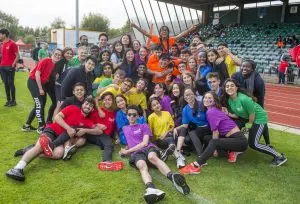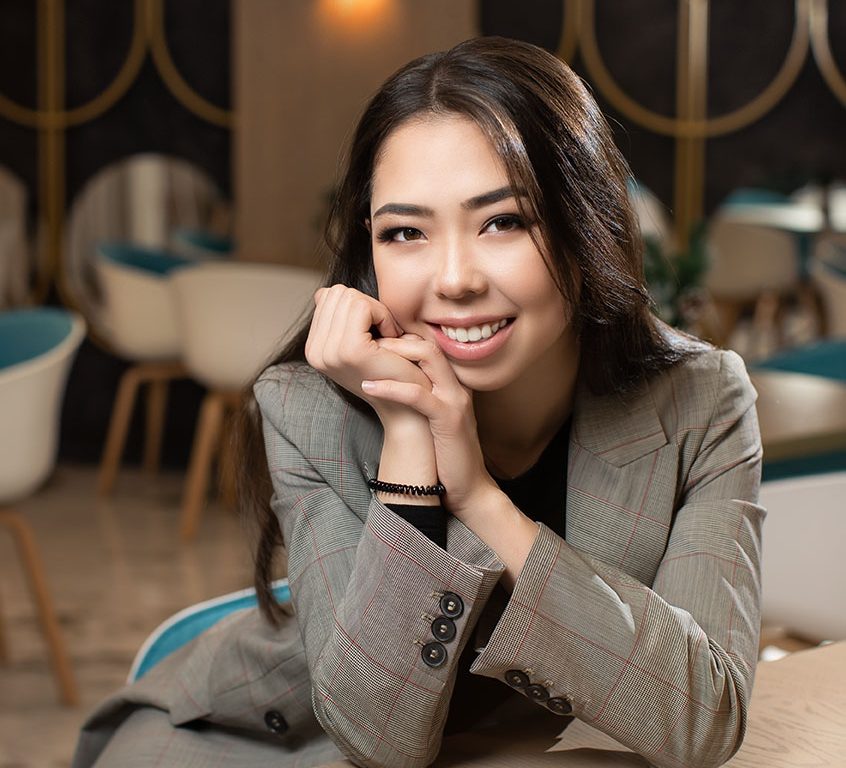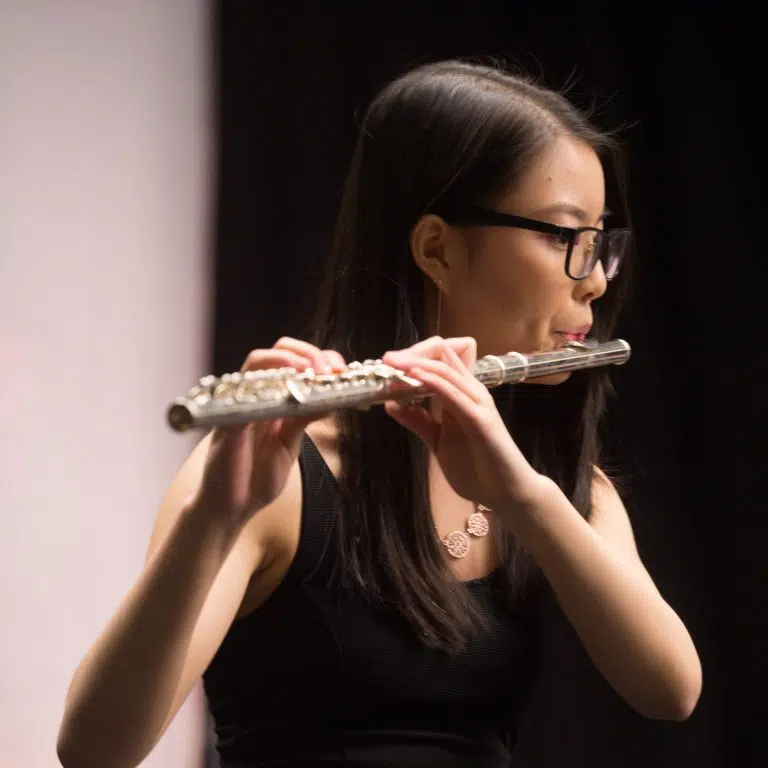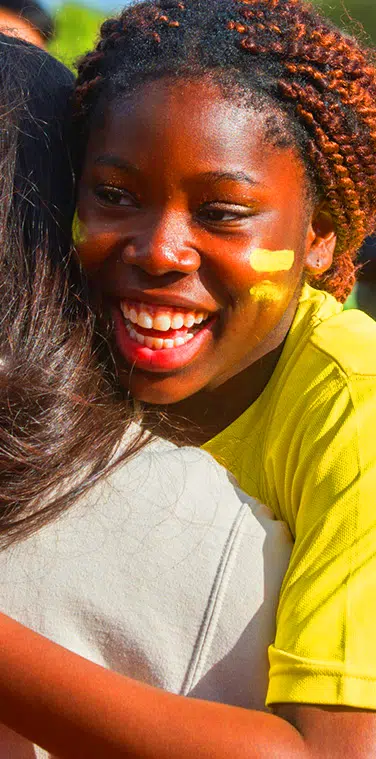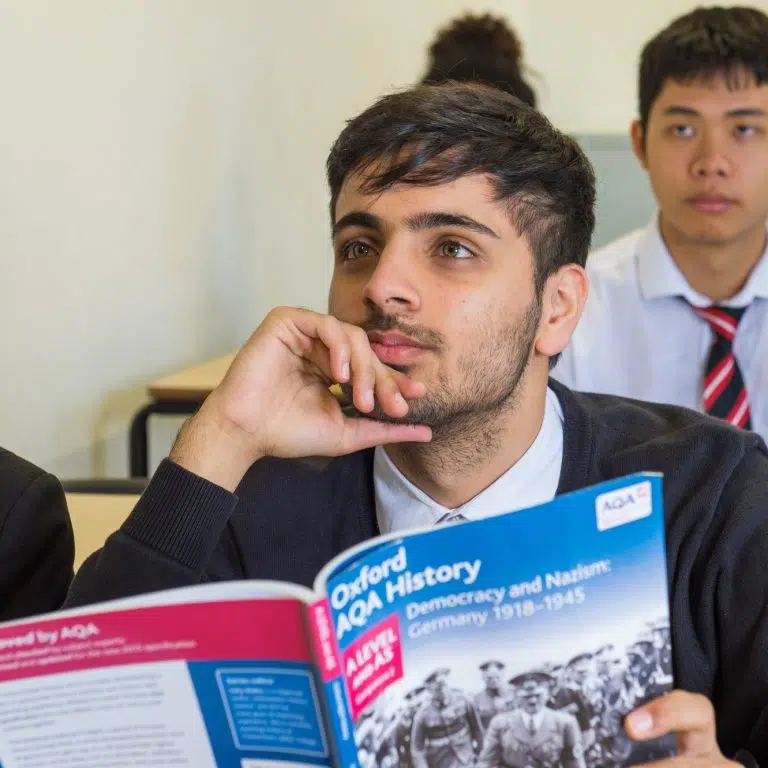By the age of 22, Dameli Bozzhanova successfully graduated from two educational institutions in the UK, entered an internship at a large international company and came up with her own startup. For the magazine “Study Abroad,” she told how this all happened.
School time
– Damels, let’s start with your school years. Where did you study?
⠀
– In Kazakhstan, I studied at different schools. Primary years are at the International College of Continuing Education (MKNO) in Astana (now Nur-Sultan), then we moved to Almaty, where I continued my studies at MKNO, after which I studied at the School of Entrepreneurs for one year. The last two years I spent at the Miras International School in Astana, where we returned with my family, and after graduating from the 10th grade I went to study in the UK.
⠀
– What foundation did Kazakhstan schools give you to study abroad?
⠀
– Our schools gave me a strong mathematical and language base. For example, MKNO sends students to language camps abroad from primary school, and from about 10 years old I went to the UK almost every summer for a month, which greatly affected my level of English.
⠀
– Did you immediately want to study abroad?
⠀
– No. In the 9th and 10th grade, I was sure that I wanted to become a lawyer and study in Kazakhstan, I have already chosen a university, I have made a legal project based on Kazakhstani legislation. But then my dad advised me to get higher education in another country, and I listened to him.
⠀
– Your first stop on the path to obtaining a foreign education was Cardiff Six Form College. Why exactly Cardiff? Did someone help with the choice?
⠀
– Several colleges were recommended to me at the M&K educational center, my dad helped make the final choice. In the 10th grade, I started collecting documents and submitting applications. We sent documents to three colleges: Cardiff and two other schools. They didn’t take me to one of the schools, because they had a two years’ waiting list. The other school offered a place immediately after the tests, I received their answer first. But I did not give my confirmation to that school, as I was waiting for a response from Cardiff, because I wanted to study there. After receiving a positive response from Cardiff, I chose it.
– Please tell us about the process of entering the Cardiff Sixth Form College.
– At first I sent the documents according to the requirements of the selection committee. First of all, an introductory essay on why I want to learn there, why they should accept me, wrote about my achievements and about the project on law, with which I took second place in the republican competition. I also provided school grades over the past couple of years and an IELTS certificate. The college later sent math tests, and the final step was an interview with their representative via Skype. As a result, in 2014, after finishing the 10th grade in Kazakhstan, I entered Cardiff.
– What turned out to be the most difficult when entering college?
– Probably the most difficult psychologically for me was the test, because when writing an essay and going through an interview, you don’t know what exactly the admissions committee expects from you, there are a lot of “right” options, and you write and speak from the heart as it is. But passing the test, you know for sure that the only right solution has already been laid there, and you need to thoroughly prepare in order to choose the right answers.
– Did you study extra to pass the entrance exams?
– Yes, for IELTS I studied for a year at the M&K educational center. Then for admission it was necessary to score 6.5 points, which I did on the first try.
Fascinating item ⠀
– What were your studies like at Cardiff Sixth From College? ⠀
– I studied at Cardiff for two years. It was necessary to identify four subjects in the career pathway that I planned to choose in the future for study at the university. Since I already knew that I was far from, say, Physics, I chose Economics, Mathematics, Higher Mathematics and Politics, however, in the second year of study I dropped Politics. I put more emphasis on economics, because in mathematics I was strong enough thanks to Kazakh schools. When I studied economics at first, I had difficulties with the language due to the large number of new and complex terminologies, but we had to write a lot of essays and study impressive volumes of specialized literature. Therefore, the first year I devoted most of my time to economics, and in the second year I had to divide the lion’s share of time and attention between economics and higher mathematics.
– Where did you live and how did your relations with others develop? Have you experienced any bias because you are not English?
– I lived in a student residence, it is one for all Cardiff Sixth Form College students. Relations with teachers and classmates were warm, plus there were other students from Kazakhstan, I lived with several of our girls on the same floor, and made friends. In general, the vast majority of Cardiff students are foreigners, many from China and Southeast Asia, so there was no bias or discrimination.
– What turned out to be the most useful for you in studying at Cardiff?
– The school studied our successes, developed programs for participation in volunteer activities, taught how to seek practice and helped if we could not cope with this. All this contributed to the admission to universities.
– Do you remember any of the Cardiff teachers especially?
– We had wonderful teachers. Probably most of all I remember the Economics teacher Mr. Bogan, he was my favourite teacher. It was he who instilled interest and desire to connect his life with this area. Apparently, due to the fact that Mr. Bogan could captivate students with his subject, Economics was the best for me. Of course, there are very strong teachers of mathematics. Definitely the education that Cardiff provides is at such a high level due to the teaching staff.
Foundation for the future
– What did you do at the London School of Economics (LSE)?
– I entered LSE under the UCAS program (Universities and Colleges Admissions Service, a centralized application system for admission to universities in the UK). You choose five universities, then you write one general essay about the subject that you want to study, and the reasons for choosing it, why you should be enrolled in the ranks of students, etc. Together with grades for the first year of college, the essay is sent to all five universities, and you wait. It happens that universities send out additional questions or tests to make a decision. If I am not mistaken, in January 2016 the LSE sent me a so-called conditional offer. The condition for admission was to show grades no lower than a certain level based on the results of the second year of college. Then in August I got the final grades for college and already knew that in September I was going to university.
– No exams?
– No, there were no entrance exams.
– At the University you have chosen the faculty of Management. Why?
– With a set of subjects that I studied in college, I could go into finance, economics and international relations, that is, almost anywhere. But management is a discipline that covers a bit of everything: marketing, finance, economics, statistics and much more, that is, everything that can be useful to me both in developing my own business, and in finding a job and building a career in the corporate environment. I thought that this would be a good foundation for what I want to do in the future.
– How was your training at the LSE?
– Intensive. There was a lot of material to study, and it was quite complicated. I spent a lot of time in the library, but at the same time I managed to volunteer and participate in clubs. I would like to note that the LSE has all kinds of student support groups and the so-called office hours, where you can clarify certain difficult topics, which was very useful.
– And speaking of the structure of the educational process itself – what is it like?
– I studied at the LSE for three years. There are two semesters in a year, each six months’ long. In some subjects, exams are taken in winter, but they “cover” only part of the subject, and the final exams are usually held in summer. Some subjects are studied all year (full module), others only one semester (half module).
– What subjects did you study?
– The main subjects established by the university were mathematics, economics, statistics, econometrics, accounting fundamentals, marketing, strategy and organizational behavior. As for my optional subjects, I chose: corporate finance, valuation, emerging markets, statistical analysis.
– What was especially difficult?
– The main difficulty for me was that you study a lot on your own, and during the year there are almost no checks on the assimilation of the material, and you don’t understand how well you understood and remembered what you learned. According to my program, exams were held mainly at the end of the school year, which meant that in the summer you sit down again and remember what you studied in the first semester, which was in the fall of the previous year.
– During your studies at the LSE, did you engage in some kind of volunteer activities and clubs?
– Yes, I was a volunteer at the embassy, helped with events: I met guests, handed out flyers and all that sort of thing. And in the second year of study, I joined the club studying emerging markets, at first as a member of the marketing team, then, in the third year of study, I became its president. For example, we held a two-day conference on emerging markets, where anyone could attend by buying a ticket. We organized the conference entirely on our own: we drew up a program, agreed with a hotel in the Covent Garden area to provide a venue, invited speakers, looked for sponsors, everything from start to finish.
– Did you do any work experience while studying at the university?
– Of course. I did my work experience in Kazakhstan, the first year at the Boston Consulting Group, where I helped consultants work with a particular case, and the second year at Price Waterhouse Coopers in the consulting department.
– Today you are the holder of a bachelor’s degree (Bachelor of Science). Do you plan to continue education, for example, to get an MA?
“Yes, but not now.” After graduation, I think I need to gain work experience, to understand what sphere I want to move to, because now I still do not fully understand this. When I already know exactly where my path lies, I will choose a university and related subjects.
Startup Experience
– You are already working on your own startup. Tell us more.
– Unfortunately, I can tell you very little about the startup just yet. My friend and I took part in a competition from LSE called LSE Generate, where you can present your business idea and get a work visa for two years in the UK and funding to implement this idea. In 2019, more than 100 people took part in the LSE Generate. There are several stages in the competition: first you describe a business model, then you make a presentation, and the last stage is an interview, after which the fate of the visas being drawn is decided (there were 20 of them in that year, if I’m not mistaken). For example, we recently received approval for a work visa. The next step is a presentation to potential investors, that is, a fight for real money.
– Is everything really so strict? Is it a condition of the competition – not to talk about your project or have you decided not to get ahead of time?
– The fact is that our startup is still at the idea stage. We still do not have any, even minimal investments, no team, therefore, until we get at least some investments, we would not want to talk about it.
– At least in general terms.
– This will be a social rather than commercial application related to health.
– Do you want to build your business or still work for an existing company?
– At the initial stage, it seems logical to me to try myself inside an already operating company in order to gain experience. Therefore, I am going to move to Moscow for some time, where I will be doing an internship in the strategy department of the large French company Publicis, which is engaged in communications, marketing, advertising and PR. I will be engaged in developing strategies, for example, analyzing the target audience for a new product of a client that they are going to bring to the market, forming a strategy on how to best present and sell this product, how to make it recognizable, etc.
Categories: Student Blog

